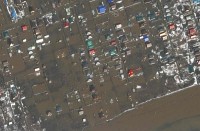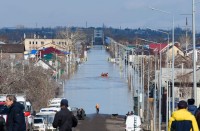
Copenhagen, Denmark (AFP) – The World Health Organization said Thursday it expected “high levels” of Covid-19 in Europe this summer and called on countries to monitor the spread as cases tripled in the past month.
“As countries across the European region have lifted the social measures that were previously in place, the virus will transmit at high levels over the summer”, WHO Europe regional director Hans Kluge told AFP.
“This virus won’t go away just because countries stop looking for it. It’s still spreading, it’s still changing, and it’s still taking lives.”
With the milder but more contagious Omicron subvariant BA.5 spreading across the continent, the 53 countries in the WHO European region are currently registering just under 500,000 cases daily, according to the organisation’s data.
That is up from around 150,000 cases daily at the end of May.
Austria, Cyprus, France, Germany, Greece, Luxembourg and Portugal were the countries with the highest incidence rates, with almost all countries in the region seeing a rise in cases.
After registering around 4,000 to 5,000 deaths per day throughout most of the winter, Europe is currently seeing around 500 deaths per day, about the same level as during the summer of 2020.
“We hope that the strong vaccine programmes most member states have implemented together with prior infection will mean that we avoid the more severe consequences that we saw earlier in the pandemic”, Kluge said.
“However, our recommendations remain,” he stressed.
The WHO urged people experiencing respiratory symptoms to isolate, to stay up to date with their vaccinations and wear masks in crowded places.
Kluge also urged member states to keep testing for the virus.
“We must keep looking for the virus because not doing so makes us increasingly blind to patterns of transmission and virus evolution,” Kluge said.
He also called on countries to increase their vaccination rates.
“High population immunity and the choices made to lower risk to older people is key to preventing further mortality this summer,” he said.
© Agence France-Presse







